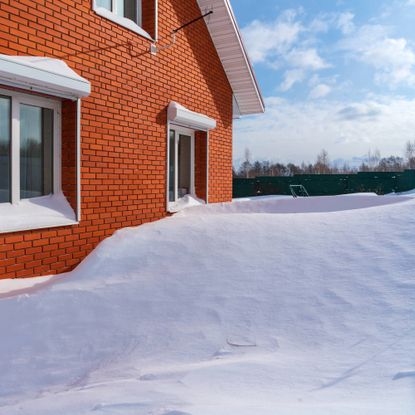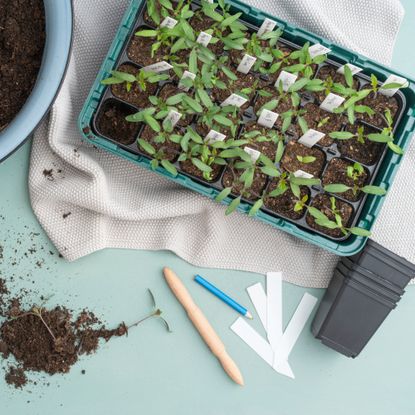Seeds
Growing gardens normally begin with garden seeds. For this reason, it helps to know more about the different types of seeds, how to start your garden seeds, and caring for seedlings once they’ve germinated. Using the following seed starting info, you can find tips on starting seeds indoors and out, mediums for starting seeds, tips for improving germination and so much more. Before you dive into your gardening projects, check out this informative section to find exactly what you need.
-
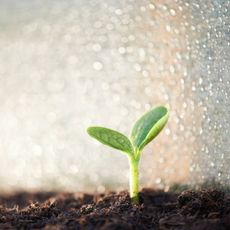
February Is the Worst Month for Seedling Sweat – Here's the Exact Moment to Remove Covers
Removing covers too late or too soon can spell disaster for your seedlings. Watch for these signs to prevent problems.
By Tyler Schuster
-
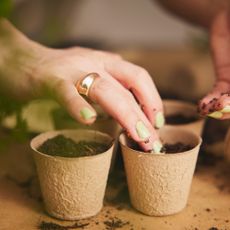
Which Type of Seed Starting Container Is Best for Your Plants? Expert Reveals How to Choose the Right One for Stronger Seedlings
A gardening expert talks the pros and cons of common seed starting containers and shares her top picks to to grow strong seedlings.
By Teo Spengler
-
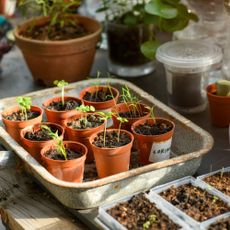
Old Farmers Warn Against Starting Seeds on These 9 February Dates – Here’s Why
If you’re starting seeds in February, these are the dates you need to avoid (and the ones to aim for instead).
By Kayleigh Dray
-
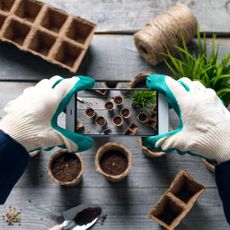
Don't Plant Dead Seeds! This Clever Phone Trick Checks Seed Viability on the Spot
Traditional germination tests take weeks, but your phone can do it in seconds. Here's how you can check seed viability. (No, it's not an app!)
By Tyler Schuster
-
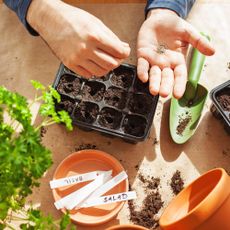
Want Stronger, Healthier Seedlings? These Seed Germination Stations Make It Easy – Even in Winter
Quality germination stations combine heat, light, and humidity control to create ideal conditions for seed starting when outdoor temperatures stay too cold.
By Tyler Schuster
-
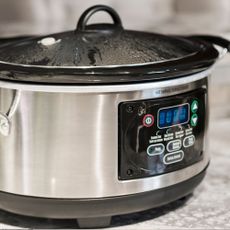
Does the Slow Cooker Seed Hack Really Work? I Put It to the Test
A lot of people herald the humble crockpot as a must for starting seeds... but I wasn't so sure.
By Kayleigh Dray
-
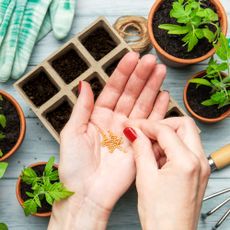
I Always Turn Old Gift Wrap Into a Clever Seed and Garden Planner – Here’s How
Don't throw away your old gift wrap! It could be the best solution for planning your garden (particularly when it comes to seeds).
By Kayleigh Dray
-
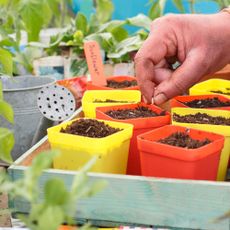
Now's The Time to Start Seeds – and I've Found the Best Affordable Seed Bundles For Any Garden
From classic vegetables to edible flowers, these seed bundles take the guesswork out of what to plant this season – plus, they're all under $50.
By Allie Kerkhoff
-
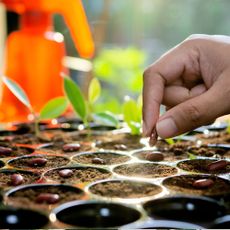
This $12.49 Gadget Could Be the Secret to Faster, More Reliable Seed Germination
A little warmth, a lot of joy? Yeah, you'd best believe that your seedlings will thank you.
By Kayleigh Dray
-
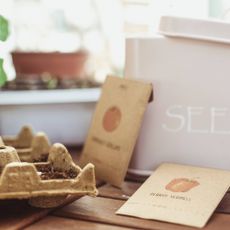
Most Gardeners Make These 3 Seed-Ordering Mistakes in January – Don't Be One of Them!
Don't click buy until you read this!
By Tyler Schuster
-
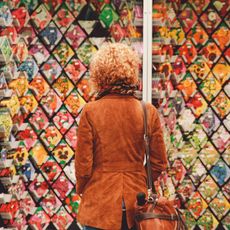
Beat the Rush: Order These 9 In-Demand Flower and Veg Seeds in January Before They Sell Out Everywhere
Don't miss your chance on these 2026 seeds! We've rounded up the new releases, limited runs, and perennial out-of-stockers that are already flying off the shelves.
By Liz Baessler
-

Smart Gardeners Are Buying Their Seed-Starting Tools Now – and I've Found the Best Deals on Everything You Need
Up your seed starting game with these affordable tools. Now's the time to stock up so you can start your seeds in time for spring!
By Laura Walters
-
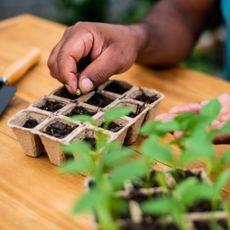
6 Plants That Aren’t Worth Starting From Seed – and 2 Easy Ones to Sow in January Instead
Don't waste your time starting these plants from seed! Grow these 2 reliable varieties instead.
By Tyler Schuster
-
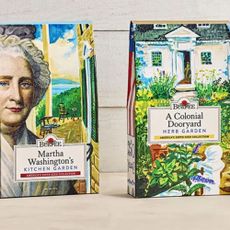
Burpee Just Dropped This Charming Heritage-Inspired Seed Collection to Celebrate America’s 250th Birthday – But Once They’re Gone, They’re Gone!
It’s time to get back to our roots (literally)...
By Kayleigh Dray
-
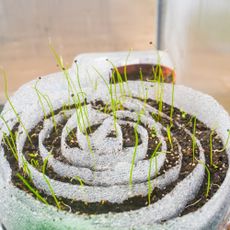
DIY These Viral Seed Snails to Start Dozens More Seeds in the Same Amount of Space – and Get Rid of Unwanted Packaging Waste
This clever seed starting hack helps you grow more plants in less space. Plus, it's a great way to use up all those packaging materials from online orders.
By Tyler Schuster
-
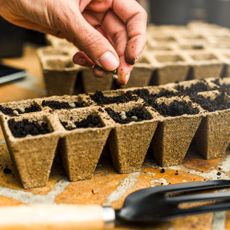
8 Seeds You Should Never Start Indoors in Winter – Wait to Sow These Veggies Outside in Spring for Bigger Harvests
Don't waste your time starting these seeds indoors during winter! Planting them outside in spring will result in stronger plants and bigger harvests.
By Tyler Schuster
-

4 Seed Storage Gift Ideas to Buy or DIY for Your Favorite Gardener This Holiday Season
Any gardener would be thrilled to find one of these clever seed organizers under the tree this holiday season! Buy or DIY them for the gardener in your life.
By Laura Walters
